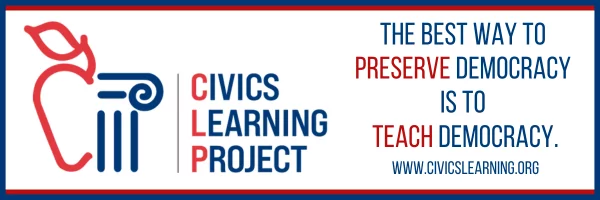Civics Learning Project continues to connect the remaining Current Events for Spring 2020 Semester to the ongoing major news about the COVID-19 Pandemic.
Introduction:
One of the most significant impacts of the COVID-19 pandemic is on relationships between countries and the growing global economic strain. International Relations is a delicate balance in the best of times, but when every country on earth is struggling to both cope with the pandemic and keep their economies and social structures functioning, it is especially challenging. How the United States has withdrawn from the global community as the pandemic has grown has been a major shift in American foreign policy. The way that the global community is dealing with COVID-19, both together and apart, and how our intertwined economies and politics will be sustained is what this week’s Current Event Resource will help you to explore.
Essential Questions:
-
- How has the spread of COVID-19 affected relationships between the United States and other countries?
- Why do countries rely so much on each other to keep the global economy healthy?
- How might the United States improve our relationships with other countries during this pandemic?
- How might economies change as the pandemic continues to spread?
- In what areas could multiple countries cooperate to protect their citizens from the economic and health effects of the pandemic?
Videos:
Recent News Articles:
W.H.O. Extends Global Health Emergency as Coronavirus Deaths Near 240,000 – The New York Times, May 1, 2020
Top US, European lawmakers call for global unity in COVID response – The Hill, May 1, 2020
Charting the Global Economy: ‘Contraction’ Becomes Common Theme – Bloomberg, May 1, 2020
The Coronavirus Is Creating a Crisis on Europe’s Borders – Foreign Policy Magazine, May 1, 2020
The Gates aren’t pinning their coronavirus hopes on the U.S. – Politico, May 1, 2020
Record Contraction in Eurozone Bodes Ill for Global Economy – Wall Street Journal, April 30, 2020
How global trade digitization could support COVID-19’s economic rebound – World Economic Forum, April 30, 2020
Coronavirus: World economy ‘unlikely to recover to pre-pandemic levels before 2022‘ – EuroNews, April 30, 2020
Europe Borders May Be Closed Until September: U.S. COVID-19 Threat – Forbes, April 12, 2020
Recent Editorials:
It’s Time to Help Africa Fight the Virus – Foreign Policy Magazine, April 29, 2020
COVID-19 is finishing off the Sino-American relationship – Japan Times, May 1, 2020
No, the Coronavirus Will Not Change the Global Order – Foreign Policy Magazine, April 16, 2020
COVID-19 pandemic presents an opportunity to refresh US foreign policy – The Hill, April 12, 2020
US’s global reputation hits rock-bottom over Trump’s coronavirus response – The Guardian, April 12, 2020
Lexile Level – Adjustable Articles (Newsela)
What it’s like to be Asian during the coronavirus pandemic – Original Source: USA Today, April 13, 2020
Effects of economic globalization – Original Source: National Geographic, Sept. 11, 2019
Opinion: Power and interdependence in the Trump era – Original Source: Project Syndicate, Sept. 11, 2019
Maps & Timelines:
Mapping the worldwide spread of the coronavirus – The Washington Post, May 1, 2020
Coronavirus: A visual guide to the economic impact – BBC, April 30, 2020
Johns Hopkins Global Coronavirus Dashboard
Lesson Plans on this topic:
Teaching About the Global Economy for All Ages – University of North Carolina
International Affairs – iCivics
What Causes an Economic Recession? – TEDEd
International Relations Concept Plans – Study.com
Lesson Plans regarding Media & News Literacy (general):
Media Literacy Resources – Newseum
News & Media Literacy Lessons – Common Sense
Media Misinformation, Viral Deception, and “Fake News” – University of Wyoming
Evaluating Sources in a ‘Post-Truth’ World: Ideas for Teaching and Learning About Fake News – New York Times Lessons


